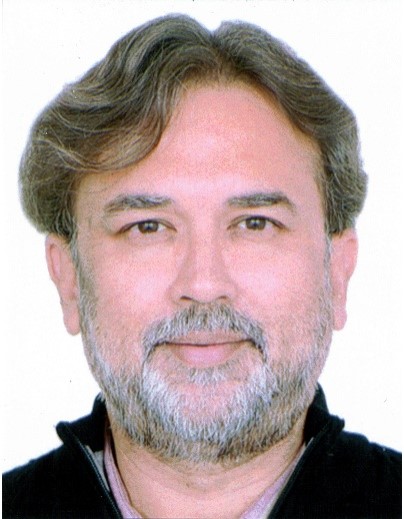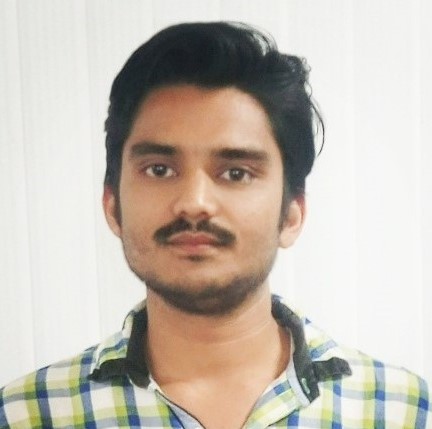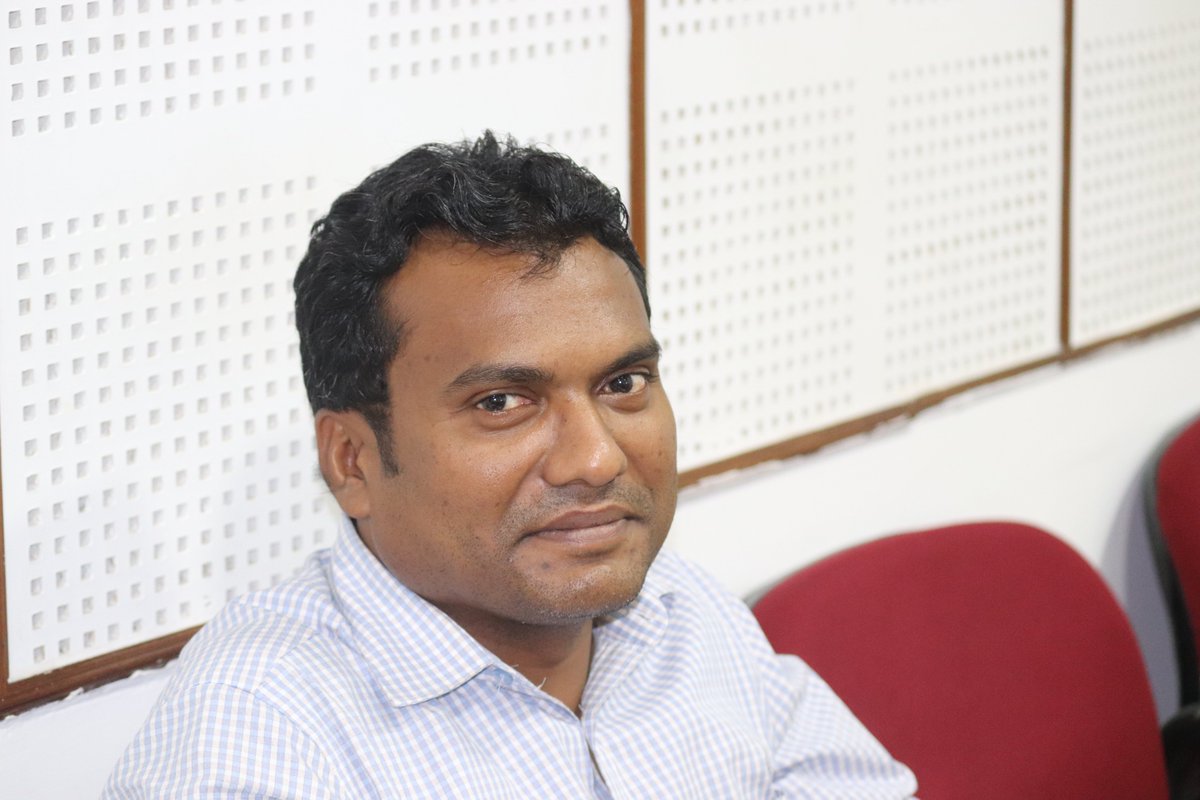The course consists of 14 contact hours, which includes four Lecture Slots of 1.5 hrs each plus one hour of discussion/tutorial. Two slots each by Prof. Sameer Khandekar and Prof. Vishwas Wadekar. Discussion/tutorial hour will be jointly by the course coordinators.
Day 1: Introduction to Transport Phenomena, Interfacial Phenomena and Thermodynamics, Interfacial Phenomena and Thermodynamics, Fundamentals and Enhancement of Boiling Heat Transfer, and Tubular heat exchangers: Two-phase Applications and Some Recent developments.
Day 2: Compact Heat Exchangers for Phase-Change Duties, Two-phase Applications of Plate and Plate-Fin type Heat Exchangers, Heat Pipes Science and Technology, and Instrumentation Techniques.
 Prof. Sameer Khandekar
Prof. Sameer Khandekar
Department of Mechanical Engineering, IIT Kanpur
Prof. Sameer Khandekar is affiliated to the Department of Mechanical Engineering, Indian Institute of Technology Kanpur, India, since September 2004. He completed Masters Program from IIT Kanpur, India (1998-2000) and subsequently earned doctoral degree from University of Stuttgart, Germany (2000-2004). He has worked as a marine power plant engineer on board sea-going merchant vessels for four years (1994-1998). At present, Prof. Khandekar is an occupant of Sir M. Visvesvaraya Chair at IIT Kanpur. He is also a Fellow of Indian National Academy of Engineering (INAE) and Institution of Engineers (India). He is a recipient of P. K. Kelkar Research Fellowship (IIT Kanpur; 2008-2011)), DAAD Fellowship (2011), Prof. K. N. Seetharamu Award (Indian Society of Heat and Mass Transfer, 2010), George Grover Medal (International Heat Pipe Committee, 2007) and Young Scientist Award (Department of Atomic Energy, India, 2005). Prof. Khandekar is a Chairperson of the International Heat Pipe Committee. He has also served as an invited professor at six universities in Germany, France, Italy, Brazil, Russia and Thailand. He served as the Head, Department of Mechanical Engineering from 2020 to 2023. He has over 125 publications in international journals, over 100 in international conferences, including 25 keynote lectures, nine patents and five books to his credit. His research interests are in heat pipes, experimental microscale phase-change thermo-fluidic systems, boiling, condensation, water desalination and energy systems.
 Dr. Vishwas V. Wadekar
Dr. Vishwas V. Wadekar
Consultant
United Kingdom
Dr. Vishwas V. Wadekar currently works as a Consultant in United Kingdom. Previously he worked with PS2E Institute in Paris-Saclay Research Centre in industrial heat recovery area. Prior to that he was Technology Director of HTFS Research, at AspenTech Ltd, UK. He has authored or co-authored large number of technical and research papers in the area of compact heat exchangers, multi-phase flow, heat and mass transfer, and boiling. He has lectured internationally at various conferences as an invited speaker and has participated in many international scientific organising committees. He has served as a co-chairman of the Enhanced and Compact Heat Exchanger conference over a number of years. He has presented numerous training courses in many countries around the world, related to advances in heat exchanger technology, two-phase heat transfer, heat transfer enhancement technology and compact and other exchanger types. He has held visiting faculty positions in a number of universities in United Kingdom and abroad. He is a member of the UK National Committee for Heat Transfer and the Eurotherm committee. He is serves on the Editorial Board of Heat Transfer Engineering as an Associate Editor.
Total instructional time: 14 hours (12 hours of lecture + 2 hours of discussion/tutorial)
Day #1:
Four Lecture of 1.5 hrs each plus one hour of discussion/tutorial.
Two Lectures each by Prof. Sameer Khandekar and Dr. Vishwas Wadekar.
Discussion/tutorial hour jointly by both the course coordinators.
• Introduction to Transport Phenomena:
The lecture will cover the fundamentals of transport phenomena. The genesis of mass, momentum and energy transport will be discussed. The various potentials responsible for the species transport and the ensuing resistances in their transport will be delineated. The methodologies for solving transport problems will be outlined. Brief outline of scaling, analytical methods and numerical methods as solution strategies will be provided. Arguments leading to the formulation of the fundamental transport equations will be discussed in detail.
• Interfacial phenomena and Thermodynamics:
This lecture will cover the important interfacial phenomena, including genesis of surface tension, molecular description, wettability, contact line physics, description of the interfacial region, the applicable interfacial boundary condition, etc. The foundation material required to appreciate nuances of boiling, evaporation and condensation will be laid down.
• Fundamentals and Enhancement of Boiling Heat Transfer:
You will learn about fundamental aspects of boiling heat transfer. This knowledge of fundamentals is necessary to understand the concepts behind design of boiling equipment and enhancement of boiling heat transfer using engineered special surfaces. These topics will be discussed through a number of interesting examples highlighting key features of boiling heat transfer and benefits of enhanced heat transfer.
• Tubular heat exchangers: Two-phase Applications and Some Recent development:
Conventional shell and tube exchangers with their attendant advantages the robust construction and reliability of operation are still regarded as work horse of industrial heat transfer. In this lecture we will explore different types of heat exchanger configurations used in industrial practice, along with their key design considerations and possible ways of employing heat transfer enhancement technology. Practical examples of benefits of such enhancement and typical trade-offs involved in the design are highlighted.
Day #2:
Four Lectures of 1.5 hrs each plus one hour of discussion/tutorial.
Two Lectures each by Prof. Sameer Khandekar and Dr. Vishwas Wadekar.
Discussion/tutorial hour jointly by the course coordinators.
• Compact Heat Exchangers for Phase-change Duties:
Here the discussion will start with general classification of heat exchangers based on the heat transfer area density and hydraulic diameter of flow channel. These two factors are in turn used to define the compact heat exchangers. Using some typical illustrative examples the advantages of compact heat exchangers for phase change duties are then discussed.
• Two-phase Applications of Plate and Plate-Fin type Heat Exchangers:
Building on the background of compact heat exchangers developed in the previous lecture, specific examples of plate and plate-fin heat exchanger geometries are discussed here. After considering their construction details, some specific configurations and their advantages for two-phase duties are discussed. For plate-fin heat exchangers the advantages of their multistream capabilities are also covered. Finally, some interesting examples of flow configurations needed to achieve maximum heat transfer performance for different two-phase duties are discussed.
• Heat Pipes Science and Technology:
This lecture will cover the fundamentals of heat pipe science and technology. You will learn about the operating principles and how to design closed two-phase thermosyphons, conventional heat pipes, pulsating and loop heat pipes. The applications of heat pipes, especially in thermal management of electronics will also be discussed briefly.
• Instrumentation Techniques:
The fundamentals of basic instrumentation techniques typically used in the context of two-phase flow and heat transfer will be discussed. This includes various types of pressure gauges and transducers, intrusive and non-intrusive temperature measurement (LCT/IRT), void-fraction measurement, porosity/permeability measurement and image analysis with high-speed videography.
| Sl. No. | Lecture | Instructor | Time |
|---|---|---|---|
| Opening Remarks | 09:00 to 09:15 | ||
| 1 | Introduction to Transport Phenomena | Prof. Sameer Khandekar | 09:15 to 10:45 |
| Tea Break | 10:45 to 11:00 | ||
| 2 | Fundamentals & Enhancement of Boiling Heat Transfer | Dr. Vishwas V. Wadekar | 11:00 to 12:30 |
| Discussion Session; Q & A | 12:30 to 13:00 | ||
| Lunch Break | 13:00 to 14:00 | ||
| 3 | Interfacial Phenomena and Thermodynamics | Prof. Sameer Khandekar | 14:00 to 15:30 |
| Tea Break | 15:30 to 15:45 | ||
| 4 | Tubular heat exchangers: Two-phase Applications and Some Recent developments | Dr. Vishwas V. Wadekar | 15:45 to 17:15 |
| Conclusions | 17:15 to 17:30 |
| Sl. No. | Lecture | Instructor | Time |
|---|---|---|---|
| Opening Remarks | 09:00 to 09:15 | ||
| 1 | Compact Heat Exchangers for Phase-change Duties | Dr. Vishwas V. Wadekar | 09:15 to 10:45 |
| Tea Break | 10:45 to 11:00 | ||
| 2 | Heat Pipes Science and Technology | Prof. Sameer Khandekar | 11:00 to 12:30 |
| Discussion Session; Q & A | 12:30 to 13:00 | ||
| Lunch Break | 13:00 to 14:00 | ||
| 3 | Two-phase Applications of Plate and Plate-Fin type Heat Exchangers | Dr. Vishwas V. Wadekar | 14:00 to 15:30 |
| Tea Break | 15:30 to 15:45 | ||
| 4 | Instrumentation Techniques | Prof. Sameer Khandekar | 15:45 to 17:15 |
| Conclusions | 17:15 to 17:30 |
| Sl. No. | Category of participants | Registration fee* (in Rs.) | Total including taxes (in Rs.) - A |
|---|---|---|---|
| 1 | Students/Research scholars | 3,500 | 4,130.00 |
| 2 | Delegates from host institute | 4,000 | 4,720.00 |
| 3 | Delegates from academic & research institutions | 5,000 | 5,900.00 |
| 4 | Delegates from industry | 6,000 | 7,080.00 |
| Sl. No. | Category of accommodation | Accommodation fee* + (in Rs.) | Total including taxes (in Rs.) - B |
|---|---|---|---|
| 1 | Hostel (shared rooms with double occupancy) | 850 for two days | 1,003.00 |
| 2 | Hostel (single occupancy) | 1,100 for two days | 1,298.00 |
| 3 | Guest House | 3,500 for two days | 4,130.00 |
1. *Taxes @ 18% will be applicable over the accommodation charge.
2. + Starting from the afternoon of December 11, till the evening of December 13, 2023.
Note: When registering, kindly pay the total amount (Column A + Column B) as per your category of registration.

Anoop Kumar Shukla
PhD Scholar,
Department of Mechanical Engineering, IIT Patna
Email: anoop_2021me20@iitp.ac.in

Dr. Chetankumar Patel
Assistant Professor,
Department of Mechanical Engineering, IIT Patna
Email: chetan@iitp.ac.in
